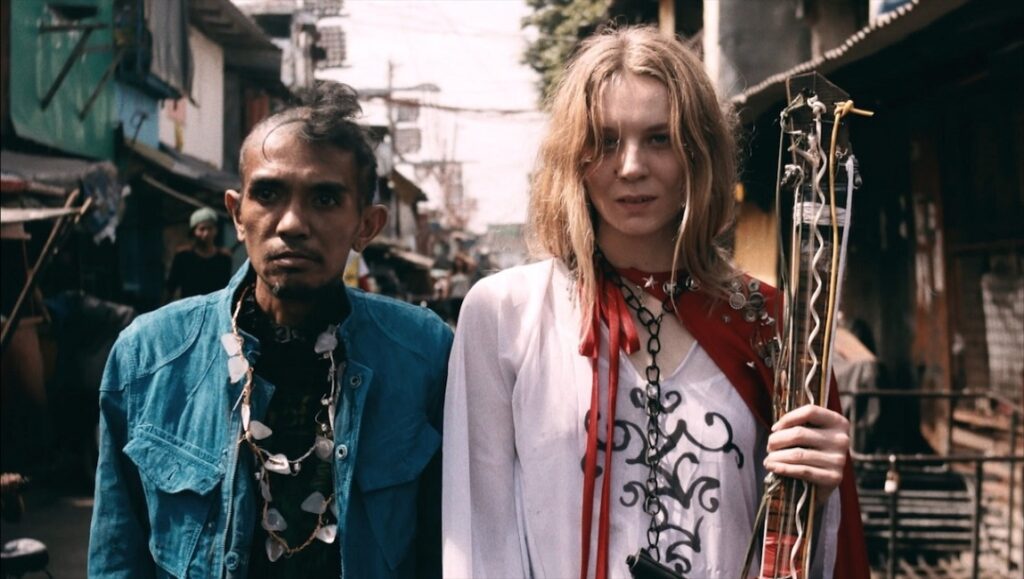Orphea is as scattershot a film as one would expect from the unlikely artistic duo of Alexander Kluge and Khavn De La Cruz. The two first collaborated with the 2018 quasi-documentary Happy Lamento and have returned to breathe new life into the myth of Orpheus and Eurydice — doing so by flipping their genders to become Orphea and Euridiko. But anyone familiar with the work of Kluge — veteran of German cinema and influencer to many — should know that this will not simply be a retelling of the old myth, and that it will undoubtedly be layered with as many historical and academic reference points as the text will allow. Kluge’s films, especially his more recent work, have been concerned for the way in which film, and culture in general, are used to organize human experience in our current age of mechanical reproduction. It is for this reason that they avoid linearity and approach cinema with the discursive/associative trappings that recall few besides Godard. Orphea fits this mould well: though, on the surface, we are shown the journey of Orphea as she travels past orgiastic revelries and through the darkened brothels of Manilla to find her Euridiko, she is also transported throughout history, tracing lines between things such as the human fascination with immortality leading to contemporary research in Silicon Valley, and the migration movements seen throughout modern Europe.
Death, or a world of the dead, and its opposition to the world of the living is the thread running through the micro-narratives of Kluge’s connections. Thus, Orphea’s journey becomes a utopian one, manifesting itself through nothing more than the film’s form, that gathers together the images of the dead in order to allow the spectator to not only look back at their Euridiko, but also enter into the light of the future alongside him. In this spectator’s opinion, Kluge and Khavn are not as successful here as they were in the past, nor are their associations as illuminating to the concepts and topics at hand as it appears they believe. To what degree this matters is again an issue for the spectator to decide as there are indeed delights to be found within this formally audacious construction site of a film, even if certain moments lack a much-needed comprehension.
Published as part of Berlin International Film Festival 2020 | Dispatch 1.


Comments are closed.